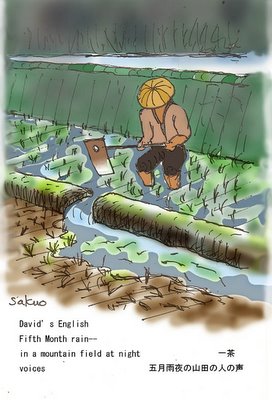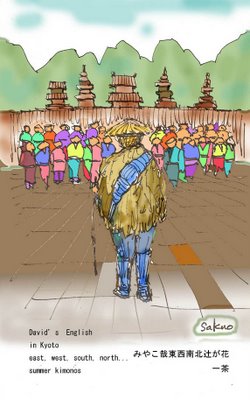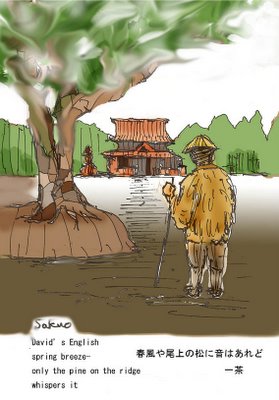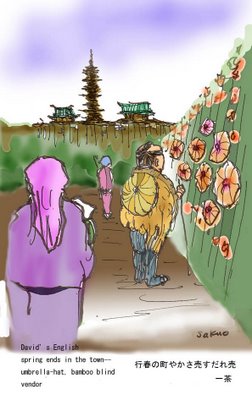 1790s
1790sIssa Original
いつぞやがいとまごひ哉墓の露
itsuzoya ga itoma[go]i kana haka no tsuyu
David’s English
just the other day
we said goodbye...
dewy grave
sakuo Renku
無情なる哉時の流れは
heartless is
the flow of the time
 1970’s, year unknown
1970’s, year unknown 1790s
1790s 1792
1792 
 1792 age 30, on the trip to Western Province, he has been to Kyoto.
1792 age 30, on the trip to Western Province, he has been to Kyoto. 1792 age 30.
1792 age 30.
 Issa Original year unknown
Issa Original year unknown